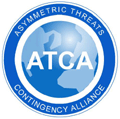
Pakistan, Democracy and Counter Insurgency
London, UK - 5 November 2007, 17:43 GMT
Dear ATCA Colleagues
[Please note that the views presented by individual contributors
are not necessarily representative of the views of ATCA, which is neutral.
ATCA conducts collective Socratic dialogue on global opportunities and threats.]
We are grateful to Vice Admiral Dr Verghese Koithara from Wellington in Tamil
Nadu, India, for his submission to ATCA, "Pakistan, Democracy and Counter
Insurgency."
Dear DK and Colleagues
Re: Pakistan, Democracy and Counter Insurgency
General Musharraf has imposed military rule in Pakistan for the second time
- eight years after he did it the first time. It was a different world when
the first imposition took place on October 12, 1999. The shock of 9/11 lay
two years in the future, and jihadism was only a distant rumble in the West.
Democracy was widely seen as the solution to wars and internal strife. In
Pakistan, the army had many Islamist senior officers who had risen during
General Zia-ul-Haq's decade-long (1977-88) military rule, which had coincided
with the war against the Soviet Union in Afghanistan. Also, Musharraf was
seen as a dangerous adventurer responsible for the 1999 Kargil War with India,
just a year after the two countries had tested nuclear bombs. The coup was
therefore widely condemned abroad, and Musharraf became a pariah. Within Pakistan,
the reactions were different however. A decade (1988-99) of civilian rule,
alternating between Benazir Bhutto and Nawaz Sharif, had seen the Pakistan
economy at its worst. This, and their political and financial shenanigans,
had left both leaders with little popular sympathy.
[CONTINUES]
[ATCA Membership]
Best regards
Verghese Koithara
Vice Admiral Dr Verghese Koithara, formerly with the Indian Navy, is often
described as India's finest strategic thinkers. He is the author of two important
books: Crafting Peace in Kashmir - Through a Realist Lens [2004, Sage] and
Society, State and Security - The Indian Experience [1999, Sage].
"Crafting Peace in Kashmir" presents a completely new perspective
on the Kashmir conflict, this book argues that resolving the situation can
be brought about through a 'peace strategy' rather than a 'war strategy'.
Through an analysis of the conflicts in Northern Ireland, Sri Lanka and Palestine,
Vice-Admiral Koithara draws parallels between the India-Pakistan conflict.
He also presents reasons why a durable peace - based on the Line of Control
becoming the settled border and the two parts of Jammu and Kashmir being given
parallel and substantial autonomy - can be achieved in today's conditions.
The book concludes that peace between India and Pakistan is possible based
on political realism and that strategic solutions that safeguard the interests
of both countries are available.
"Society, State and Security" asks: Can the Indian state reconcile
the demands of human and national security? In a well-documented and wide-ranging
analysis, Vice-Admiral Koithara contends that there is more to security than
territorial integrity and the preservation of state sovereignty. He traces
the development of the Indian state since independence, examines the impact
of the external environment on the country, and contrasts the experience of
India, China and Indonesia in their handling of security concerns. He examines
the contemporary situation, impacts of the global system, and assesses the
military and non-military dangers India is likely to face in the future. He
delineates areas that are important for the security of both India and its
people and recommends that in managing national security both the politico-military
and socio-economic dimensions must be considered.
[ENDS]
We look forward to your further thoughts, observations and views. Thank
you.
Best wishes
For and on behalf of DK Matai, Chairman, Asymmetric Threats Contingency
Alliance (ATCA)
ATCA: The Asymmetric Threats Contingency
Alliance is a philanthropic expert initiative founded in 2001
to resolve complex global challenges through collective Socratic
dialogue and joint executive action to build a wisdom based global
economy. Adhering to the doctrine of non-violence, ATCA addresses
asymmetric threats and social opportunities arising from climate
chaos and the environment; radical poverty and microfinance; geo-politics
and energy; organised crime & extremism; advanced technologies
-- bio, info, nano, robo & AI; demographic skews and resource
shortages; pandemics; financial systems and systemic risk; as
well as transhumanism and ethics. Present membership of ATCA is
by invitation only and has over 5,000 distinguished members from
over 120 countries: including 1,000 Parliamentarians; 1,500 Chairmen
and CEOs of corporations; 1,000 Heads of NGOs; 750 Directors at
Academic Centres of Excellence; 500 Inventors and Original thinkers;
as well as 250 Editors-in-Chief of major media.
The views presented by individual contributors are not necessarily
representative of the views of ATCA, which is neutral. Please
do not forward or use the material circulated without permission
and full attribution.
Intelligence Unit | mi2g | tel +44 (0) 20 7712 1782 fax +44
(0) 20 7712 1501 | internet www.mi2g.net
mi2g: Winner of the Queen's Award for Enterprise in the category
of Innovation
|

